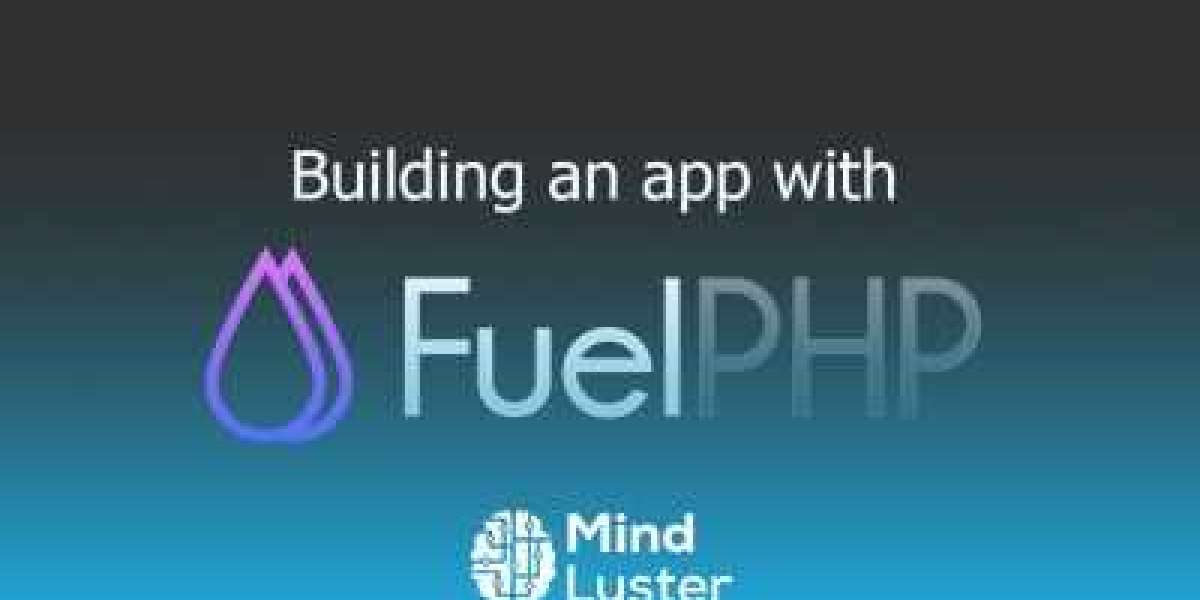In the ever-evolving world of web development, choosing the right PHP framework can significantly impact the performance and scalability of your application. Among the myriad options available, Fuel PHP stands out as a powerful and flexible framework designed to meet the demands of modern web development. This article delves into the core features, advantages, and real-world applications of Fuel PHP, providing a detailed overview for developers and businesses alike.
What is Fuel PHP?
Fuel PHP is an open-source, full-stack PHP framework known for its simplicity, flexibility, and performance. Developed with a focus on providing a robust foundation for web applications, Fuel PHP is built on the principles of extensibility and modularity. This framework allows developers to create scalable and maintainable applications while leveraging the power of PHP.
Core Features of Fuel PHP
HMVC Architecture: Fuel PHP utilizes the Hierarchical Model-View-Controller (HMVC) architecture, which allows for better organization and separation of concerns within an application. This architecture enhances the modularity of the code, making it easier to manage and scale.
Modular Design: The modular approach of Fuel PHP enables developers to create reusable components and packages. This design pattern facilitates the integration of new features and functionality without disrupting the existing codebase.
Security: Fuel PHP places a strong emphasis on security, offering built-in features to protect against common vulnerabilities such as SQL injection and cross-site scripting (XSS). The framework includes secure authentication mechanisms and input validation tools to safeguard applications.
Routing: Fuel PHP provides a flexible routing system that allows developers to define custom routes and manage URL patterns efficiently. This feature enables the creation of user-friendly URLs and improves the overall SEO of the application.
Database Abstraction: With support for various database management systems, Fuel PHP offers a robust database abstraction layer. This feature simplifies database operations and enhances compatibility with different database engines.
Templating Engine: Fuel PHP includes a powerful templating engine that allows for the separation of presentation logic from business logic. This feature promotes cleaner and more maintainable code.
Advantages of Fuel PHP
Performance: Fuel PHP is designed with performance in mind, offering features such as caching and optimized query handling to ensure fast and efficient application execution. The framework's lightweight nature contributes to its overall speed and responsiveness.
Flexibility: The modular design and extensibility of Fuel PHP make it a versatile choice for various types of web applications. Developers can easily customize and extend the framework to meet specific project requirements.
Documentation and Community Support: Fuel PHP boasts comprehensive documentation and an active community of developers. This support network provides valuable resources and assistance for troubleshooting and learning.
Ease of Use: Fuel PHP is known for its user-friendly interface and intuitive syntax. Developers can quickly get up to speed with the framework, reducing the learning curve and accelerating development.
Real-World Applications of Fuel PHP
Fuel PHP is suitable for a wide range of web development projects, including:
E-Commerce Platforms: The framework's modular design and scalability make it an excellent choice for building robust e-commerce solutions. Developers can create custom modules and integrate payment gateways with ease.
Content Management Systems (CMS): Fuel PHP's flexibility and templating engine are ideal for developing CMS platforms that require dynamic content management and user-friendly interfaces.
Social Networking Sites: The framework's performance and security features are well-suited for creating social networking applications that handle large volumes of user data and interactions.
Business Applications: Fuel PHP's extensibility and modularity allow for the development of custom business applications tailored to specific organizational needs.
Fuel PHP vs. Other PHP Frameworks
When compared to other popular PHP frameworks such as Laravel, Symfony, and CodeIgniter, Fuel PHP offers distinct advantages:
Laravel: While Laravel is known for its elegant syntax and extensive features, Fuel PHP provides a more lightweight and modular approach. Developers who prefer a more streamlined framework with a focus on performance may find Fuel PHP appealing.
Symfony: Symfony is a comprehensive framework with a steep learning curve. Fuel PHP, on the other hand, offers a more accessible entry point for developers who prioritize ease of use and flexibility.
CodeIgniter: CodeIgniter is known for its simplicity and performance, but Fuel PHP's HMVC architecture and modular design provide additional benefits in terms of code organization and scalability.
Conclusion
Fuel PHP emerges as a powerful and versatile PHP framework that caters to the needs of modern web development. Its HMVC architecture, modular design, and emphasis on performance and security make it an attractive choice for developers seeking a robust foundation for their applications. By leveraging Fuel PHP's features and advantages, developers can create scalable, maintainable, and high-performing web solutions that meet the demands of today's digital landscape.
Whether you are building an e-commerce platform, a content management system, or a business application, Fuel PHP offers the tools and flexibility needed to succeed. With its user-friendly interface and active community support, Fuel PHP stands out as a framework that can help you achieve your web development goals with confidence.


